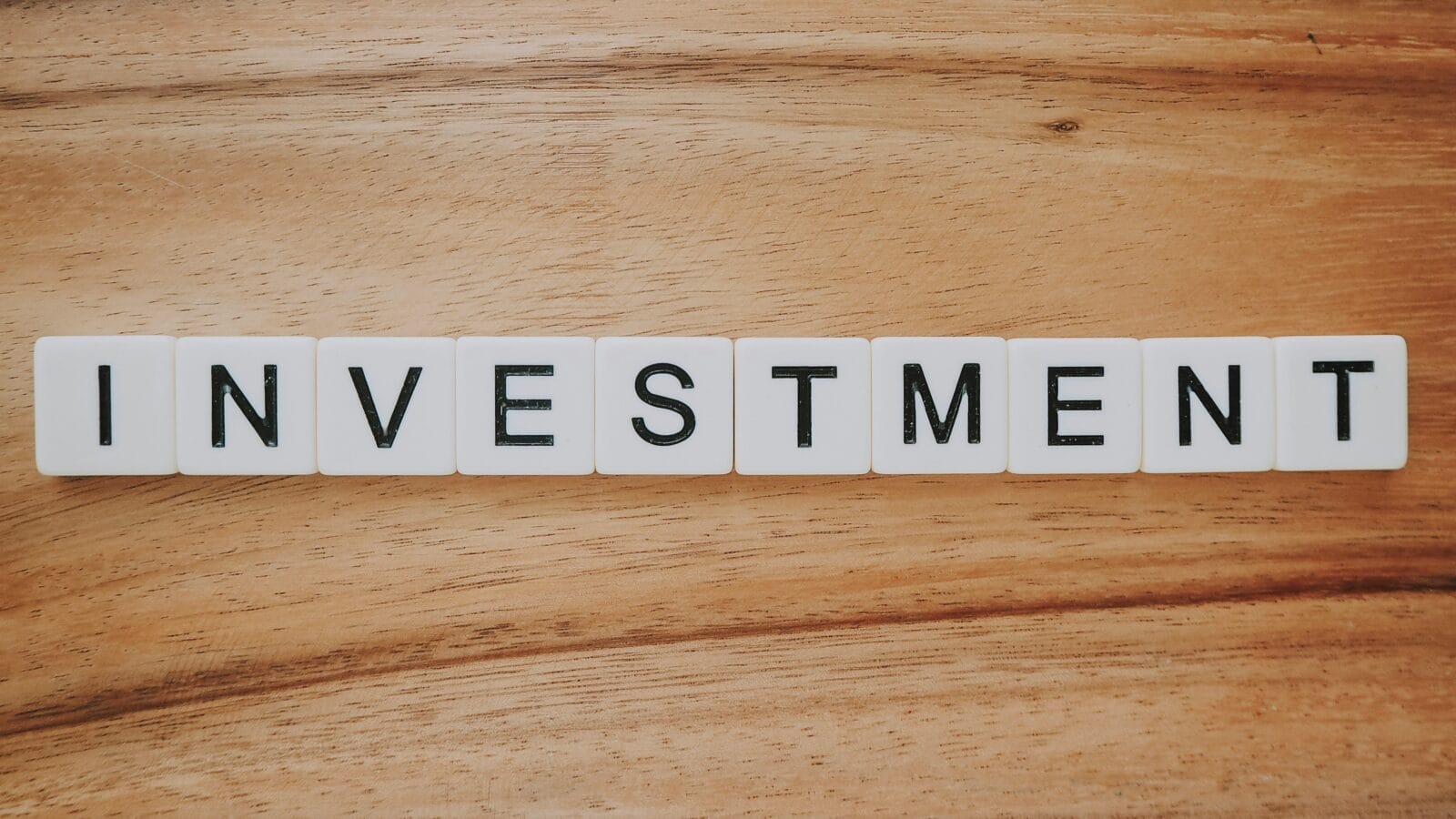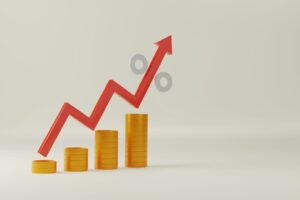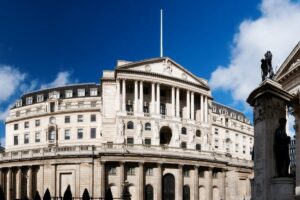Laith Khalaf, head of investment analysis at AJ Bell, comments on the FTSE 100 breaching the 8,000 point mark today.
He said: “It’s redemption day for the FTSE 100 as it breached the 8,000 mark after a long spell in the wilderness. The 8,000 level is a purely psychological milestone, but investors in the UK stock market will nonetheless be happily counting their coffers after a year in which it has been one of the best performing major markets. Pension and ISA valuations will be looking pretty healthy thanks to the performance of the FTSE 100 and indeed the continued resurgence in the US stock market since the turn of the year.
“This silver lining isn’t entirely shorn of a cloud however, because much of the success of the UK stock market over the last year can be traced back to Russia’s invasion of Ukraine. This helped buoy the share prices of the oil and gas sector, and the financial sector too, as the fight against increased inflation has meant interest rates have also had to rise, boosting bank reserves. A weak pound has also helped propel the Footsie upwards, thanks to all the overseas earnings made by the companies within it. It’s notable that the last calendar year in which the FTSE 100 outperformed the S&P 500 was in 2016, when the pound also took a hammering following the EU referendum. But while a weak pound may be a shot in the arm for the UK stock market, it is also a vote of no confidence in the UK economy.
“The UK stock market has been viewed with fear, doubt and suspicion for many years now. Retail investors have spent the last seven years relentlessly selling down their UK stock market holdings and buying into US and global equity funds instead. Meanwhile the UK now makes up just over 4% of the global stock market, which will be reflected in the money allocated to the Footsie by international fund managers. The high weighting of energy companies and tobacco stocks also discourages investment from the rising number of funds with sustainability targets to meet.
“Despite the fact it won’t win any popularity contests, the UK stock market does have considerable appeal. They may be outside the FTSE 100, but the small and medium sized segments of the market have performed well over the long term, with the FTSE 250 comfortably beating the S&P 500 dollar return over 20 years. What’s more, small and midcaps have been happy hunting grounds for active managers to prove their worth, amplifying returns for many investors.
“The UK stock market is also home to a lot of companies that pay dividends as part of their DNA, so it’s a great place for income-seekers. For that reason, it’s probably an especially good idea to wrap UK investments in an ISA, because the tax-free dividend allowance is being cut from £2,000 to £500 in the next two years. Even for those looking for long term total returns, the power of reinvested dividends can be compelling. With growth looking thin on the ground in the coming year, investors may well be tempted by the one in the hand of dividends compared to two in the bush of capital gains.”
Crossing the 1,000 point barrier
“It’s taken a relatively long time for the FTSE 100 to advance 1,000 points, as it’s almost 8 years since the index crossed the 7,000 threshold. This is nothing compared to the time taken to climb from 6,000 to 7,000, which took almost 17 years. That long wait is likely related to the rapid advance in the FTSE 100 during the dotcom bubble of the late 1990s, where future growth that failed to materialise was priced in by rampant speculation. It’s fair to say this period also skews the figures somewhat, but it’s also important to note that each subsequent 1,000 point advance marks a progressively less impressive price appreciation for the index.
“The first 1,000 point climb from 1,000 to 2,000 required a doubling in the price of the index. The move from 7,000 to 8,000 represents a jump in the FTSE 100 of just 14.3%, which translates into a compound capital return of just 1.7% a year for the last eight years. Not a slap in the face when you consider that doesn’t include dividends, but hardly a stellar performance either.”
| FTSE 100 crosses | Date | Time since last 1000 mark* | Price increase |
| 1000 | 3 January 1984 | FTSE 100 launch | N/A |
| 2000 | 4 March 1987 | 3 years 2 months | 100.00% |
| 3000 | 11 August 1993 | 6 years 5 months | 50.00% |
| 4000 | 2 October 1996 | 3 years 1 months | 33.33% |
| 5000 | 6 August 1997 | 10 months | 25.00% |
| 6000 | 1 April 1998 | 7 months | 20.00% |
| 7000 | 20 March 2015 | 16 years 11 months | 16.67% |
| 8000 | 15 February 2023 | 7 years 10 months | 14.29% |
*completed months, based on closing prices
Sources: AJ Bell, Refinitiv
FTSE 100 – dividends not included
“The FTSE 100 is the most widely used barometer of the health of the UK stock market, but the headline index doesn’t include dividends, which are a key component of investor returns. While this doesn’t affect the FTSE 100 too much over shorter time frames, over the longer term the gains made by the FTSE 100 significantly undershoots the return made by investors.
“For example, since the index crossed the 7,000 mark, it has risen by 14.3%, but with dividends reinvested an investor would have actually made over 50% on their money. A more stark example because of the time involved is the move from 6,000 to 7,000, which reflects a price increase of just 16.7%, but with dividends reinvested the index returned 104.3%. So while the headline FTSE 100 index is a perfectly good measure of day to day market movements, investors shouldn’t be fooled into thinking it’s an accurate reflection of long term returns from the stock market.”
Small is beautiful
“As well as excluding dividends, the FTSE 100 also excludes the medium and smaller companies that trade on the UK stock market. The FTSE All Share includes a large chunk of these, and while it is still dominated by the big beasts of the FTSE 100, it’s a better measure of how the UK stock market as a whole is performing. The FTSE 100 has had a very good year, but over the longer term it’s the smaller companies and midcaps which have stolen the show, and helped to propel the returns from the FTSE All Share beyond those of the FTSE 100 alone.”
| 1yr | 10yr | 20 yr | |
| FTSE 100 | 9.6 | 83.2 | 362.6 |
| FTSE 250 | -4.7 | 92.2 | 754.2 |
| FTSE Small Cap | -4.4 | 136.2 | 557.4 |
| FTSE All Share | 6.9 | 86.2 | 405.8 |
Source: FE total return to 14th Feb 2023
International comparisons
“While it’s been a good year for the FTSE 100, the longer term picture is nowhere near as rosy when compared with other major international indices. Over 10 years it’s fallen far behind competitors and the picture looks even more stark when gains from overseas stock markets are translated into sterling, which represents the return available to UK-based investors.
| 1 year total return | 10 year total return | ||||
| Index | Region | local currency | GBP | local currency | GBP |
| FTSE 100 | UK | 9.6 | 9.6 | 83.2 | 83.2 |
| CAC 40 | France | 8.5 | 14.5 | 167.8 | 175.3 |
| Topix | Japan | 4.8 | 1.5 | 150.0 | 124.1 |
| DAX | Germany | 1.3 | 7.0 | 100.6 | 106.4 |
| S&P 500 | US | -4.9 | 5.7 | 211.0 | 297.2 |
Source: FE total return in local currency
“Little wonder then that UK fund investors have been fleeing UK equity funds, typically in favour of better performing global offerings, as the chart below shows. It seems likely that the FTSE 100 will have to post more than one year of competitive performance to arrest this trend, though it would be hard to envisage a more negative year for UK fund sales than 2022. The last year does show why it’s important not to have all your eggs in one basket, with the US stock market falling into a bear market before recovering its poise towards the end of the year. The UK stock market should be part of any regionally diversified portfolio, and it also offers income investors a decent yield, but the fund sales figures show fund investors aren’t buying the recovery story just yet.”

















